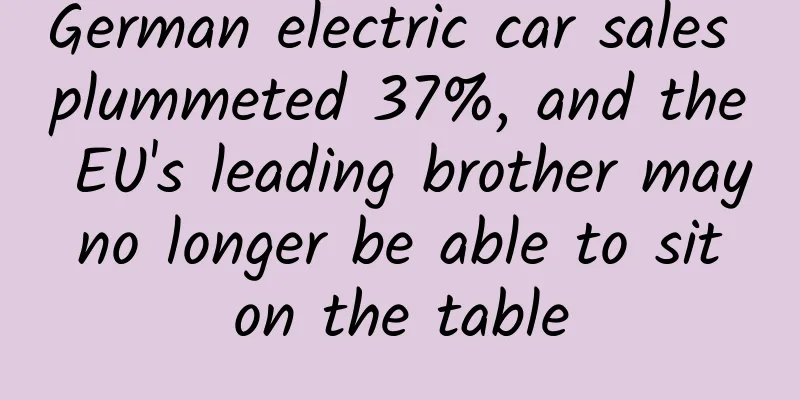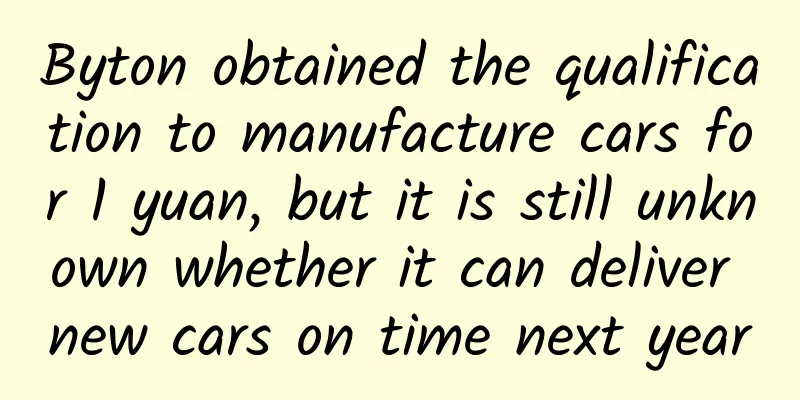German electric car sales plummeted 37%, and the EU's leading brother may no longer be able to sit on the table

|
Electric car sales in Germany fell 37% in July, causing the penetration rate of electric cars in Europe to drop to 13.6%, down from 14.5% last year. The European Union is one of the earliest regions in the world to develop electric vehicles, and Germany once proposed a radical transformation plan, but now the chill seems to have spread to everyone's face. In the first half of this year, 20 German auto parts suppliers with annual turnover of more than 10 million euros went bankrupt, a 60% increase year-on-year. ZF announced that it would lay off 11,000 to 14,000 employees in the future, Continental will complete its 7,150 layoffs by next year, and Bosch Group announced that it would lay off 2,700 employees by the end of 2026. Now, some people have begun to discuss the scenario after the collapse of the German automobile industry. Some research institutions believe that if the German automobile industry loses 40% of its sales by 2045, it will cause 743,000 unemployment in Germany and a GDP shrinkage of up to 174 billion euros. The decline of the German automobile industry will not spare other major European automobile countries. Countries such as the Czech Republic and Hungary, which are deeply tied to the German automobile industry, will also be deeply affected. Ever since the beginning of the automobile industry, Germany has been a major player in the global automobile industry, with world-famous automobile brands such as Volkswagen, Mercedes-Benz, BMW, and Porsche, as well as auto parts giants such as Continental, Bosch, and ZF, as well as a global marketing and service network. But now, the German auto industry has smelled the most dangerous breath of death. Generally speaking, there is a direct reason for the decline in car sales, which is the decline in product performance and the failure to meet user needs. However, this is obviously not the case in Germany. Compared with the Japanese automobile industry, which is often involved in "data fraud" scandals, Germany is a true craftsman. In the past few years, German cars have not encountered any major crises. The predicament of the German automobile industry is first caused by insufficient demand. The direct cause is the Russia-Ukraine conflict that broke out in early 2022, which caused energy prices in the European Union to rise. The automobile industry, which is closely related to energy, was the most obvious to be affected. The European market is still dominated by fuel vehicles, and car owners are more sensitive to oil prices. From the end of 2022 to April 2023, the price of gasoline in Germany continued to rise, reaching a high of 1.82 euros per liter. The high cost of using cars has caused German car sales to stagnate. This is just one of the troubles encountered by the German auto industry. From the perspective of the entire auto industry, the German auto industry has long entered the stock replacement market, and the market size is unlikely to expand. Statistics show that in the past 20 years, German car sales have been hovering around 3.5 million. Traditional fuel vehicles, both in terms of technical level and overall performance, are actually gradually approaching their limits, and it is difficult to achieve significant improvements. When an industry cannot generate new selling points, it will inevitably go downhill. There is actually a key variable here, and that is new energy vehicles. Taking the Chinese market as an example, the sales volume of new energy vehicles was only 1.367 million units in 2020, but it soared to an astonishing 9.5 million units in 2023, not only offsetting the impact of the decline in sales of fuel vehicles, but also further pushing total automobile sales to a historical high, and by the way, pushing China to the throne of global automobile export champion. Unfortunately, Germany did not capture this variable. In 2023, Germany's electric car sales will only reach 524,000 units, up 11.4% year-on-year, making it the country with the highest electric car sales in Europe. However, its production is only 1.27 million units. This data looks good, but the automobile industry is a scale-oriented industry. This production is not enough to support the overall transformation of the German automobile market. It is only equivalent to one-third of BYD's sales, and it certainly cannot support more ambitious dreams. In addition, Germany has not accumulated much in the field of core technology for electric vehicles. So far, most of the world's mainstream power battery manufacturers are from China, Japan and South Korea, and most of the lidar manufacturers are from China. Germany does not have an advantage in automotive-grade chips and software. In April 2023, Volkswagen CEO Blume came to China to attend the Beijing Auto Show, and bluntly stated that Volkswagen was seriously lagging behind in in-vehicle software. In May, he announced a major streamlining of the CARIAD software department, which was burning money. The independent research and development strategy set by the former CEO Diess was basically abandoned. Subsequently, Volkswagen chose to invest in Xpeng Motors to make up for its shortcomings in software and intelligence. There is no shortage of money or brand influence, but there is a lack of core technology and a complete supply chain. This is the current situation of Germany's new energy vehicle industry. It was at this moment that the German government stepped on the accelerator again on the downhill road. At the end of 2023, the German government suddenly canceled the electric vehicle subsidy plan that was originally scheduled to last until the end of 2024, citing insufficient fiscal budget as an excuse. Electric vehicle sales plummeted, dragging down sales across Europe as well. In fact, the German automotive industry is not short of sober people. Volkswagen is a typical example. On the one hand, it has set up more new energy manufacturers in China and established a Chinese R&D center. On the other hand, it has sought cooperation with Chinese manufacturers such as Xiaopeng and SAIC, sowing more possibilities for its future. But from a holistic perspective, like Japan, the decline of the German automobile industry is inevitable. On a larger scale, this is related to the rise of China, as only a vast market is a truly constant advantage. On a smaller scale, in the AI era, many rules of the manufacturing industry will be rewritten, just as the leaked speech of Google's former chairman said, in the competition in the AI era, only China and the United States have the strength to participate. As for Germany and Japan, they may not even be on the table. As a winner of Toutiao's Qingyun Plan and Baijiahao's Bai+ Plan, the 2019 Baidu Digital Author of the Year, the Baijiahao's Most Popular Author in the Technology Field, the 2019 Sogou Technology and Culture Author, and the 2021 Baijiahao Quarterly Influential Creator, he has won many awards, including the 2013 Sohu Best Industry Media Person, the 2015 China New Media Entrepreneurship Competition Beijing Third Place, the 2015 Guangmang Experience Award, the 2015 China New Media Entrepreneurship Competition Finals Third Place, and the 2018 Baidu Dynamic Annual Powerful Celebrity. |
Recommend
Smart home is still a little cold, mobile devices will become industry catalyst
Whether it is science fiction movies on the scree...
Promotion effect is unstable? Account performance optimization method!
While promoting information flow, the effect sudd...
The "final boss" of the movie "Jurassic World" turns out to be this!
The "guest" we are interviewing today i...
New generation of trader Jenny circle video
Introduction to the video resources of the new ge...
Why is Hainan agarwood so expensive that it was praised by ancient great writers?
Hainan agarwood has always been the best among al...
If you don’t understand, just ask, why are there silkworm pupae hanging on ginkgo trees?
Before reading the article, a reminder The pictur...
Lamborghini Urus to be launched in China in 2018, will launch its first plug-in hybrid car
According to foreign media reports, Lamborghini&#...
Love Class: 28 "Sweet Marriage Techniques" to Rebuild a Sweet Marriage
Sister Lin Wei's Secret Love Class: 28 "...
Attention! WeChat suspends new user registration for personal accounts: resume in early August
Today, there was news online that "WeChat ha...
The secrets to selecting products for Kuaishou live streaming are here!
When we had almost unpacked all the parcels, the ...
Man sues bank after girlfriend secretly shops online
A young man born in the 1980s found that the paym...
How to use SMS to attract and recall lost users?
There are three common methods of user recall or ...
Users are not a cover! Let’s talk about some mistakes we are prone to and are currently making with our users!
Regarding this topic, I will only talk about a fe...
High-quality case studies on information flow delivery in the automotive industry
It’s the end of the year and it’s the crazy car b...









